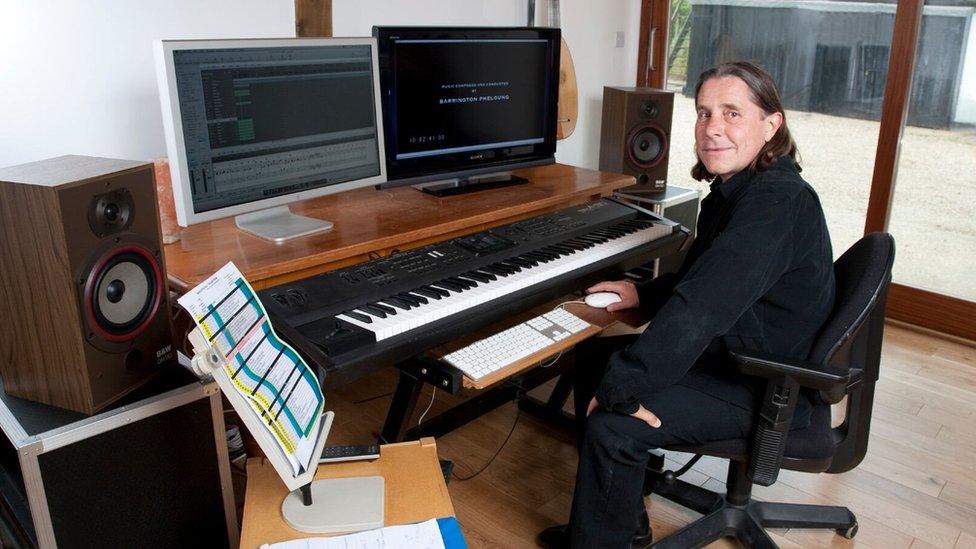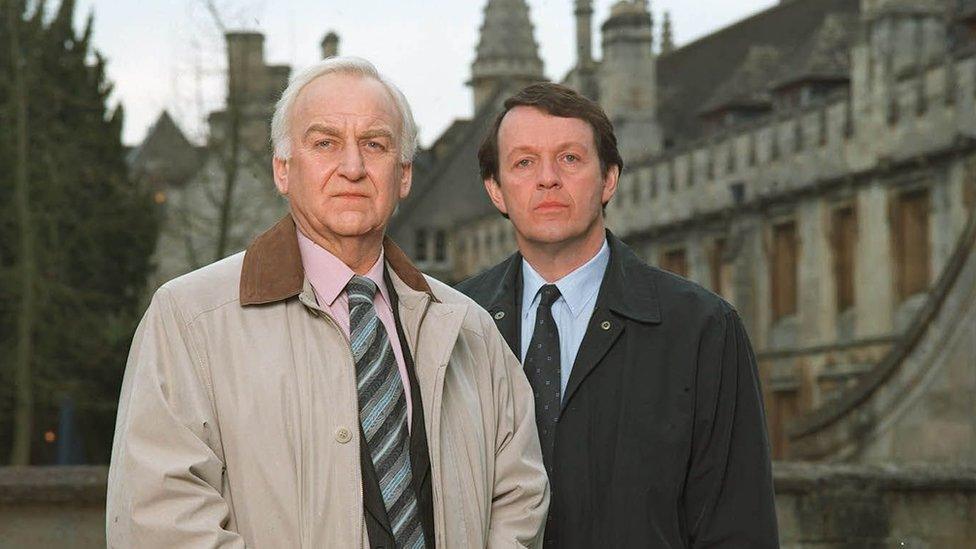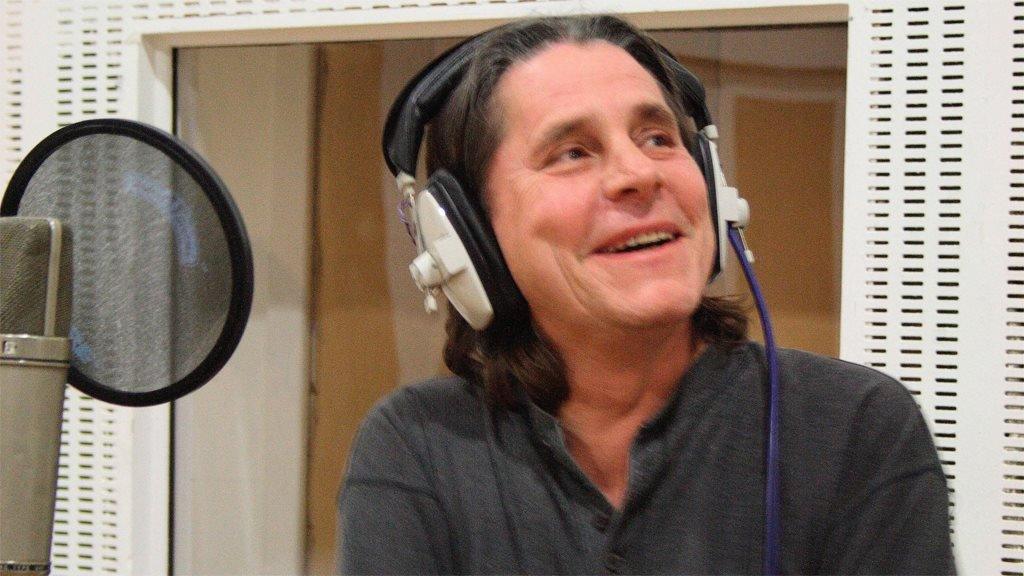Inspector Morse composer Barrington Pheloung dies
- Published

Barrington Pheloung, who composed the haunting theme for TV drama Inspector Morse, has died at the age of 65.
The Australian-born composer shared several interests with Colin Dexter's irascible detective, not least his love of opera and cryptic crosswords.
He became known for hiding clues and red herrings in the score for the TV show, occasionally revealing the killer's identity in morse code.
The hypnotic title song also included a motif based on the letters M.O.R.S.E.
Pheloung died at home in Australia, his agent confirmed to the BBC. No cause of death was given.
Cryptic mind
Born in Manly, New South Wales, in 1954, he started playing the guitar at the age of five and moved to London in his teens to study at the Royal College of Music.
Although he began his career composing for ballet, one of his early works caught the attention of director Anthony Minghella, who hired him to write the score for his stage play Made In Bangkok in 1986.
Around the same time, he got his first TV job, scoring the Michael Elphick crime drama Boon. When the show's producer Kenny McBain joined forces with Minghella to adapt Inspector Morse for TV in 1987, they approached Pheloung to supply the theme.
The classical-inspired melancholy score earned the musician global acclaim and a Bafta Award nomination for best original music. Pheloung said the success was down to the show's unconventional two-hour time slot, which allowed him to write more intricate musical cues.
"Our incentive was to try and produce a feature film rather than a television episode," he told cultural historian Damian Michael Barcroft in 2014, external. "Therefore, I was given much more scope to create longer sequences of music."

Inspector Morse starred John Thaw and Kevin Whately
The theme song was written after studying Dexter's original novels and Minghella's screenplay for the first episode.
"We decided that Morse is a very melancholic character, so the tune had to be melancholic, and he was a lover of classical music, so it should be an orchestral score and not synthesiser," he told Soundtrack magazine in 1994, external.
"The final thing is that he has a very cryptic mind, he loves doing crosswords; we came up with the obvious idea - his name is Morse and we use morse code in the music.
"It spells out his name in the main theme and that formed the rhythm. It fits nicely in a triple compound time and that suggested a harmonic structure and I picked up my guitar and there was the tune."
Pheloung went on to score dozens of other TV series, including The Politician's Wife, Dalziel and Pascoe, The Legends of Treasure Island and Morse spin-offs Lewis and Endeavour.
He also worked on several films, notably Minghella's 1992 hit Truly, Madly, Deeply, as well as Shopgirl, Nostradamus and Hilary & Jackie, based on the life of the cellist Jacqueline du Pré, for which he earned a second Bafta nomination.

The composer hid clues in the theme music for Inspector Morse
The first music played at London's Millennium Dome on New Year's Eve 1999 was also one of Pheloung's compositions.
The 17-minute piece, which premiered in front of the Queen, incorporated original music alongside performances from Jools Holland's Big Band, the English National Orchestra, the London Samba School and Indian drumming group the Dohl Foundation.
"It has been quite a challenge and I'm delighted to have just handed in the final piece," he joked two days before the opening night.
Pheloung's music also appeared at the National Theatre in a production of Arthur Miller's After The Fall, and in the video game series Broken Sword.
His representatives at DNA Music said they were "utterly heartbroken" by his death.
"Some people just can't help making a difference in our lives by simply being who they are. They make the world a little brighter, a little warmer and a lot funnier. Barrington was one of these people.
"Today is a very sad day, our hearts and thoughts are with Barrington's wife Heather, his sons Anthony, Danny and Timmy and his daughter Adel at this very sad time."
